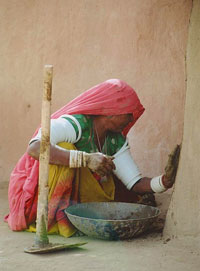A course with
Ömür Harmansah ---> Who on earth is this?
Visiting Assistant Professor of Near Eastern Art and Archaeology
Joukowsky Institute of Archaeology and the Ancient World
Brown University
Meets on Mondays 3:00-5:20 pm (the so-called M-hour) in Sayles Hall Room 200
Ömür's Office: Joukowsky Instutute (70 Waterman St.) Room 202
E-mail him Call him: 401-863-6411 Read his webpage or wiki
Office Hours: Tuesday 10-12 am. (By appointment)

| Response Papers | Final Paper Projects |
Course Description:
Things, artifacts, objects... Our very intimate material companions as we live in and make sense of the world. Archaeologists, art historians, cultural anthropologists and ethnohistorians among others attempt to make sense of past and contemporary societies through the material residues, artifacts that are remnants of human practices. Things, fetishized or not, become protagonists in our reconstructions of the past, as we increasingly believe that societies construct their world through the making of things, their use, circulation, discard. In this course we will explore the social life and the cultural biography of objects, their ability to configure social realities, human subjectivities, cultural identities.
Using fresh perspectives from the emerging field of material culture studies, we will investigate technological processes of artifact production in the material culture of the Ancient Near East and colonial Africa. Archaeological and ethnographic case studies will be explored to understand the social relations behind skilled craftsmanship and the poetics of making. This involves exploring case studies such as African “fetishes” in the context of the early Portuguese colonization, Egyptian and early Mesopotamian statues as performing objects, prehistoric figurines as living dolls, ethnographic and ethnoarchaeological accounts of Hittite rock reliefs and African houses. We will be concerned with how objects and buildings take over their own agencies and consider how they should be seen not as completed, fixed entities but as things always in the process of becoming. We will explore the ways in which collective memories are preserved, performed and obliterated in material bodies. We will take a close look at human subject - material object relations in everyday life and question the Western categories of objecthood and subjecthood.
Books ordered at Brown Bookstore:
- Gell, Alfred; 1998. Art and agency: an anthropological theory. Oxford and New York: Clarendon Press.
- Meskell, Lynn; 2004. Object worlds in ancient Egypt: material biographies past and present. Oxford and New York; Berg.
- Bailey, Douglas; 2005. Prehistoric Figurines : Representation and Corporeality in the Neolithic. Routledge : Taylor & Francis Ltd.
